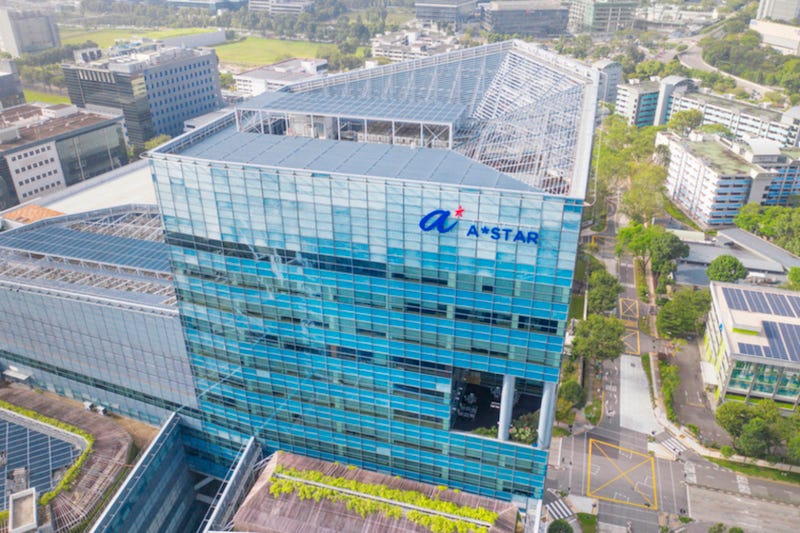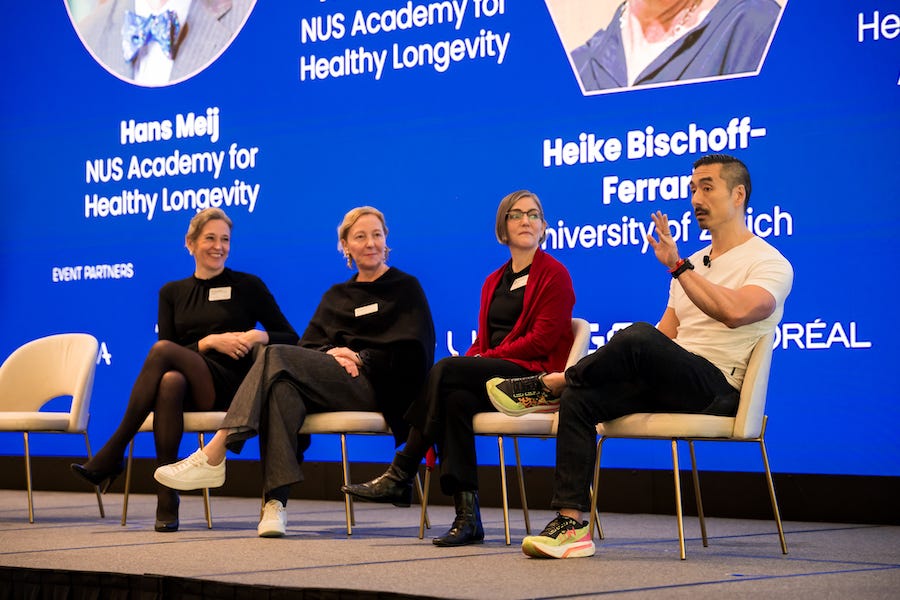Singapore Redefines Longevity Through Biotech Bets
Rapidly aging Singapore is pouring money into research and global partnerships as part of efforts to delay frailty and extend the years lived in good health

Singapore, a nation of six million, is on the front lines of a demographic revolution. The share of citizens aged 65 and above has surged from 12.4% in 2014 to 19.9% in 2024. By 2030, roughly one in four will be in this age group, putting pressure on government finances as a smaller base of working adults supports a growing number of elderly.
Longevity alone isn’t the whole story. While Singaporeans have a life expectancy of 83 years, one of the longest in the world, their "healthspan" - which is the years lived in good health - ends around 74.
This near decade-long gap of potential poor health is already weighing heavily on families, society, and the economy, which is why the Singapore government is investing heavily on multiple fronts - from promoting healthy lifestyles and wellness to developing robotic and other AgeTech solutions to help seniors cope with their frailties.
Its most ambitious efforts are in the biosciences - specifically, in building a world-class longevity biotech ecosystem. This approach tackles the social challenge of aging while simultaneously positioning Singapore as a global leader in a high-growth industry.
Singapore’s Growing Longevity Biotech Scene
Longevity biotech involves shifting healthcare from treating illness to preventing it. The aim is to delay frailty and age-related diseases such as Alzheimer’s and dementia so as to keep people healthier for longer.
The US and China lead the field, thanks to their deep capital pools, strong biotech pipeline, and solid manufacturing base. But Singapore is steadily building its credentials, with 15 R&D centers, 100 longevity-focused companies, 80 investors, and 10 NGOs, according to Aging Analytics.
At the center of this effort is A*STAR, Singapore’s public sector R&D agency. Its research into RNA biomarkers - molecules that can detect disease early - led to the creation of Mirxes, whose cancer tests are now used worldwide. In May, Mirxes became Southeast Asia’s first biotech firm to list on the Hong Kong Stock Exchange, debuting at a market capitalization of over US$1 billion.
A*STAR has also produced other promising spin-offs, including Albatroz Therapeutics (antibody treatments for cancer and arthritis), Sunbird Bio (blood tests for Alzheimer’s and Parkinson’s), and BioCheetah (non-invasive protein-based diagnostics).

The National University of Singapore (NUS) is another key player, advancing geroscience, the study of aging, and translating it into practical interventions. Through initiatives such as the Healthy Longevity Translational Research Programme and the Centre for Healthy Longevity, NUS scientists are developing diagnostics, therapies, and lifestyle strategies to extend healthspan.
Other noteworthy Singapore companies include Chi Longevity, a private clinic that offers personalized assessments and interventions to help clients slow down biological aging and improve their healthspan, and AMILI, which hosts the world’s largest multi-ethnic Asian gut microbiome database.
Research into gut microbiomes provides new avenues to study immune systems and personalized treatments for diseases such as diabetes, cancer and neurological disorders.
Foreign Talent and Investments
Besides supporting home-grown initiatives, Singapore is also attracting investments from global biotech heavyweights. China-based GenScript, a leader in gene synthesis and protein production, has expanded its Singapore site into a 3,500 square metre facility, its third largest worldwide. The facility is capable of producing more than 400 genes a day for use in therapies, vaccines, and other treatments across the Asia Pacific.
Another Chinese firm, WuXi Biologics, is investing heavily too. In 2022, it committed US$1.4 billion to build a facility that can take biologic medicines from early research through to large-scale production, adding capacity to make 120,000 litres a year by 2026. In mid 2025, it began work on another plant, due to open in 2027, to further boost Singapore’s manufacturing capabilities.
German biotech giant BioNTech has set up operations in Singapore as the regional hub for mRNA and oncology R&D and production. mRNA, or messenger RNA, is a molecule that carries instructions for cells to make proteins. It is a technology used in some vaccines to train the immune system against disease.
In 2022, BioNTech’s Singapore affiliate acquired a manufacturing facility from pharmaceutical company Novartis. Backed by the city-state’s Economic Development Board, the facility was slated to become Southeast Asia’s first dedicated mRNA manufacturing hub.
These expansions strengthen Singapore’s position as a key biotech manufacturing and R&D hub in Asia, bringing capabilities from high-volume gene synthesis to large-scale biologics production. As Dmitry Kaminskiy of Deep Knowledge Group wrote in Gulf Business, “Singapore has emerged as a model, investing in ageing research, health technologies, and community-based care programmes to extend the health span of its citizens.”
Biotech and Healthcare Funds
Global investors are waking up to the business of healthy aging. In 2024, longevity biotech attracted US$8.49 billion across 325 deals worldwide, more than double the US$3.82 billion raised in 2023, according to the Annual Longevity Investment Report 2024.
The US dominated with 83% of total funding, while Asia, comprising China, India, Japan, Singapore, and South Korea, accounted for just 2% with 29 deals. However, the report predicts Asia’s share will grow this year as regions like Singapore, Japan, and South Korea expand policy support, funding, and clinical infrastructure.
Singapore is already home to Immortal Dragons, a US$40 million longevity-focused fund launched this year, which has invested in more than 15 startups in areas such as gene therapy, 3D bioprinting, xenotransplantation, and regenerative medicine. Such funds play an important role in moving promising science out of the lab and into the clinic, helping startups overcome the costly, risky path to commercialization.
Earlier this year, Singapore hosted the Founders Longevity Forum, which brought together more than 400 scientists, investors, and entrepreneurs to explore breakthroughs in geroscience, diagnostics, and therapeutics. Such networks give local companies access not only to capital, but also to global partnerships, clinical expertise, and entry into overseas markets.

These developments signal growing confidence in Singapore’s potential to be a regional leader in longevity biotech. The influx of capital and partnerships is not just funding research; it is building the networks and expertise needed for local innovations to scale and compete globally.
Looking Ahead: Building Asia’s Healthy Aging Hub
Despite its small size and tiny population, Singapore is emerging as a regional center for longevity research and development where start-ups can thrive.
If it can keep building its research base, nurturing talent, and connecting local innovations to global markets, Singapore has a realistic shot at becoming the region’s go-to hub for healthy aging innovation; a place where science, investment, and industry meet to extend not just lifespans, but the years lived in good health.
For More Info on Asia Tech Lens


Interestingly, Singapore has just issued a new report on innovative trends in healthcare. http://go.gov.sg/aceli363?li_fat_id=8a275255-65b8-44fd-a120-2722422a5ce8
Another related post
https://www.linkedin.com/posts/jeremy-lim-3a200b5_longevity-microbiome-publichealth-activity-7370241446479613952-lt46?utm_source=share&utm_medium=member_android&rcm=ACoAAAMp4I8BVVVqeU81gKOddbXiH7W3CV_yUxw